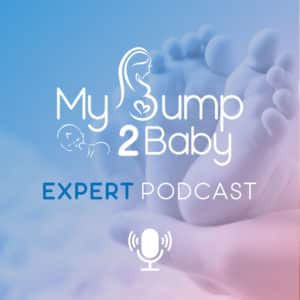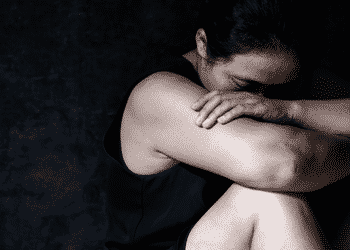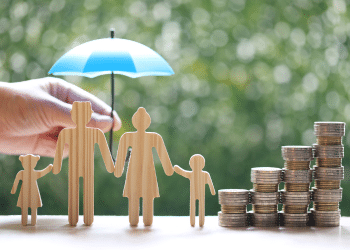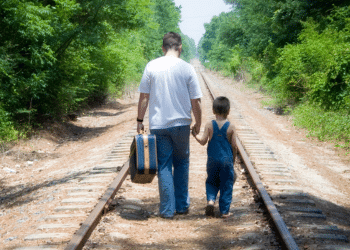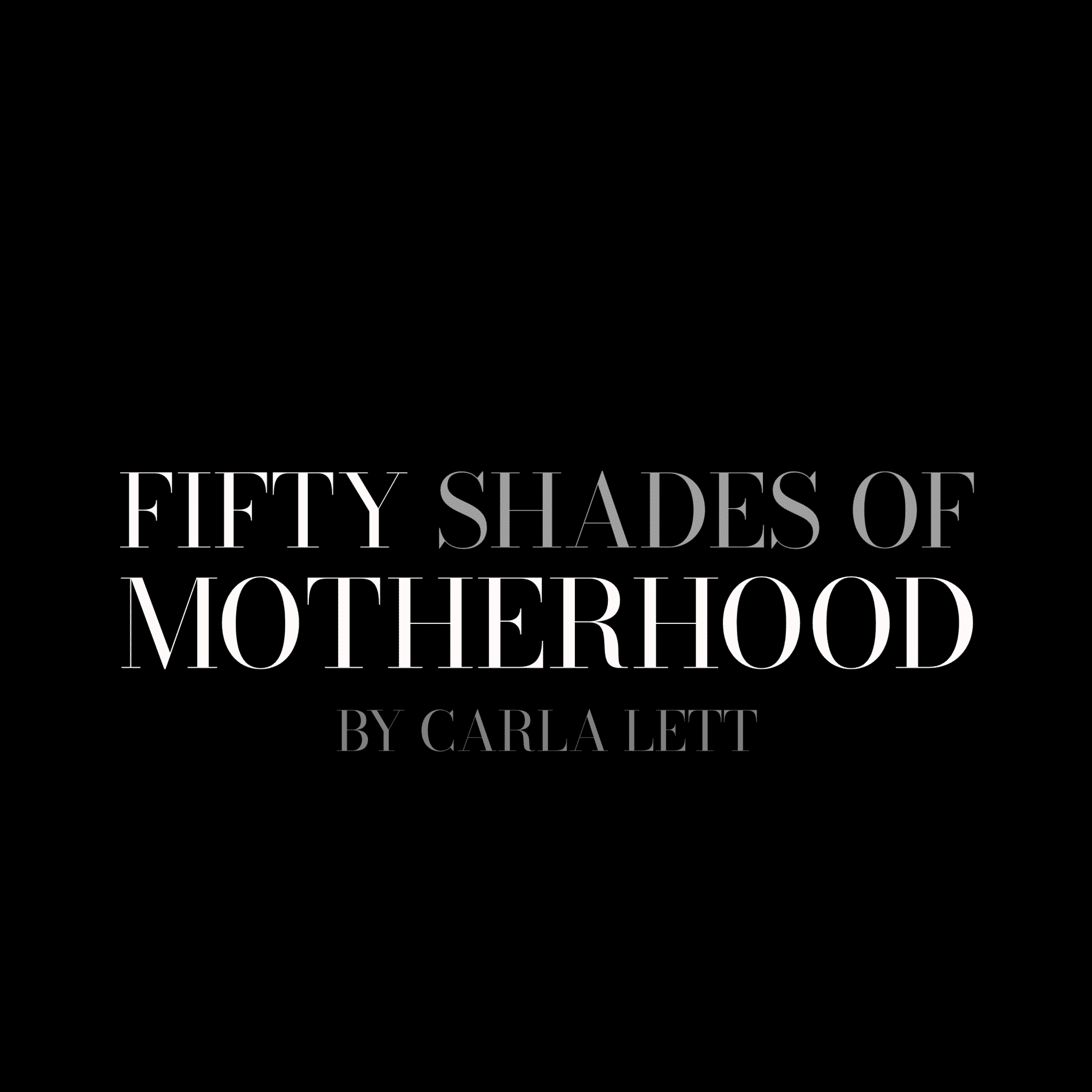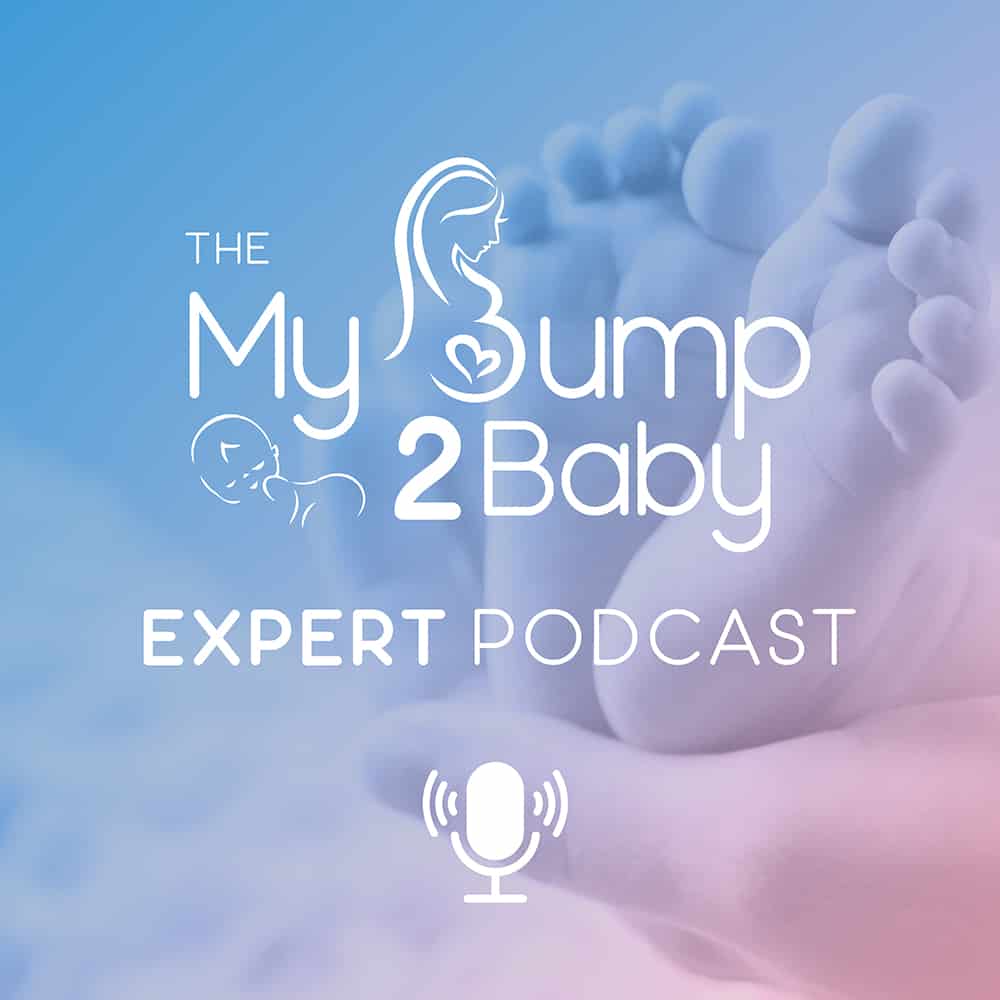- Domestic Abuse
Today we speak with Rachael Carter from Gomer Williams Solicitors in Swansea about domestic abuse, what it is, what the different types are, how to recognise it and when to seek legal advice plus much more.
For more info:
www.gomerwilliamssolicitors.co.uk
Telephone : 01554 755101
Email : [email protected]
[00:00:00] Carla: My Bump 2 Baby is one of the UKs leading parenting platforms. You can find local pregnancy to preschool groups, classes, and lessons, wherever you are in the UK. Not only that, but you can read our honest reviews on the latest products, days out and services that you as parents need to know about. We also work with trusted financial advisors, family law, solicitors, and now estate agents, too.
[00:00:33] If you would like to find your nearest, trusted expert, head over to www.mybump2baby.com.
[00:00:46] Are you a parent looking to start a small business, perhaps you’ve no idea where to start. Or maybe you’ve already got a small business and you’re struggling to take it to that next level. My bumps baby is here to support you. My pumped baby business offers training packages, mentorship programs, one-to-one support, and e-courses, if you would like more information on how to grow your business with my bump to baby.
[00:01:19] Then email us. Our email address is [email protected].
[00:01:35] Hello, and welcome to My Bump 2 Baby Expert podcast, where we bring experts from all over the UK to answer your questions on everything, pregnancy to preschool.
[00:02:02] Today we are joined by the lovely Rachel Carter from Gomer Williams Solicitors. Today, we’re going to be talking all about domestic abuse, what it is, what the different types are and how to recognise it when you’re in it.
[00:02:21] Hello everybody. And welcome to My Bump 2 Baby’s Expert podcast. Today, I am joined by the lovely Rachel Carter from Gomer Williams Solicitors, and we are talking about domestic violence and injunctions. Hi, Rachel, how are you?
[00:02:38] Rachael: Oh, hi, I’m okay. Thank you. How are you?
[00:02:40] Carla: I’m very well, thank you. I think this is a really important subject to discuss. So, um, as, as strange as it sounds, I’m actually really looking forward to talking to you about this subject, because there’ll be so many people in this situation. Um, it’s really important.
[00:02:56] Rachael: Yeah. Yeah, no, it’s such an important conversation to have.
[00:02:59] Carla: Definitely. So, Rachel, can you just tell us a little bit about you just before we begin?
[00:03:05] Rachael: Yeah. So I’m a solicitor, I’m a director of Gomer Williams Solicitors. I been a solicitor for coming up to four years and I’ve got eight years of experience dealing with domestic violence and children matters and all aspects of family law really.
[00:03:21] Carla: Brilliant. Thank you very much for that. So Rachel we’ll get started with the podcast. So first of all, um, can you explain what domestic abuse actually is for those that might not know?
[00:03:32] Rachael: Yeah. So domestic abuse is defined as a pattern of behavior and it’s used to gain or maintain power and control over a partner so it can affect anyone. And it affects everyone regardless of their race, age, sexual orientation, religion, or gender. So people seem to think that it’ll target a certain individual, but it can really affect anyone.
[00:03:54] Carla: Yeah. Yep. I know that, that’s it. I mean, there’s more and more, um, programs on the TV lately that are showing all different types of abuse as well, because it’s not just, you know, the physical violence, there’s so many different forms of abuse isn’t there. So onto, onto that now, what, what are the different types of domestic abuse, Rachael?
[00:04:16] Rachael: So there are lots of different types of domestic abuse. So just to give some examples is coercive control. So that could include intimidation, isolation control, and that’s with a threat of, um, physical or sexual violence. Um, there’s psychological abuse or emotional abuse. Um, there’s financial abuse, harassment, stalking, but the main one that people seem to think of when you think of the abuse abuse, sorry is physical violence because that’s where the injuries are. Um, and often then the other sorts of domestic violence then get overlooked.
[00:04:50] Carla: Yeah. Yeah. I think, um, I think a lot of people. When they are in a domestic abusive relationship, it can take them a while to realize if it isn’t physical, because it’s kind of slowly gets to that point. And the people that we’ve spoke to on our other podcast before they almost didn’t realize that they were in it at the time until so many things happened.
[00:05:12] Rachael: Yeah. And when you speak to people, you’ll say, oh, is there any domestic abuse involved and they’ll say oh no they’ve never hit me. And then it goes beyond that it goes beyond just hitting someone.
[00:05:23] Carla: Yeah. Yeah, definitely. So, so how would someone recognise if they’re in a domestic abusive relationship? It sounds really kind of, people listening that haven’t been in that situation might think, oh, well you just know, but, but how, how would someone recognise that?
[00:05:40] Rachael: Yeah. So there are many ways to recognise some of the signs of harm or abuse. I mean, like I just said with the emotional abuse and psychological abuse, that’s a bit more harder to identify, but what you’re really looking for is that you may hear, or you may see something between the perpetrator or the victim.
[00:05:57] Um, it may be that the victim does come to talk to you about it, or it could be that a family or friend of the victim will, may tell you something which alerts you to it. Um, like I said earlier, you could see the visible injuries, or it could just be that you noticed that something’s not quite right between the either the victim or the abuser. And that could just quite alert ,if there’s something not quite wrong, sorry. There’s not quite right. And it’s something could be wrong.
[00:06:22] Carla: That’s it. Cause sometimes, um, the abusers are very good at disguising. You know, that they are an abuser really. So sometimes it can be quite difficult to recognise as well. What would someone do if they’re struggling to know if they’re in a domestically abusive relationship?
[00:06:39] Rachael: So this is quite hard, like you said earlier, once you’re in a domestic abuse relationship, sometimes you can’t see it yourself and you almost need to take a step back. Um, and there is gaslighting as well. And what that will do is it’ll make you question your. Your own beliefs and your own thoughts and feelings and it’ll make you think whether you are actually in the wrong and you’ll have thoughts such as am I overreacting, or was I being too sensitive? Am I being crazy? And all of those sorts then will affect your ability to be sure that the relationship is abusive.
[00:07:11] Um, but what I tell a lot of my clients says, well, if someone was coming to speak to you and they were telling you the situation that you’re in at the moment, what would your advice be to them? Would you be saying actually that’s not right. That’s abusive or would you be saying, yeah, that all sounds fine. And I think it is important to speak out to people, speak to whoever you can, whether it’s family, friends, colleagues, professional support, such as doctors, midwives, health visitors. There is everyone there for you, um, to talk to.
[00:07:39] Carla: Yeah, that’s great advice. I think sometimes it can be when we’ve spoken to parents before that are in, abusive relationships, sometimes they don’t really want to admit to family and friends because they might sort out the relationship and stuff like that. But, but I mean, it is there is, a lot of, a lot of people that don’t doesn’t have to be family or friends, does it then really in, in regards to speaking to someone.
[00:08:02] Rachael: No, no, definitely though. There’s a lot of professionals out there and there’s lots of domestic violence organisations that you can speak to as well. And you can hide your identity as well. And there’s, there’s steps that can be put in place to make sure that you’re in a safe environment to speak to them as well.
[00:08:19] Carla: Brilliant. That’s really useful. So why would someone then seek legal advice for domestic abuse?
[00:08:27] Rachael: So there’s many different reasons why they would want legal advice in respect to domestic abuse. It may be that they’ve come to me. Um, and they’re thinking about ending the relationship and they want to know what steps can be put in place for them to leave the relationship safely. Especially when there’s children involved, a house involved. How that will look. Again, you need to look at where you would go when the relationship was to break down.
[00:08:50] Um, is it safe for you to stay in the home, whether you need to go to a refuge just in order to keep safe, um, or there’s other options available such as non molestation orders and occupations orders as well, which are order, applications made to the court to protect the victims.
[00:09:06] Carla: Great. Great. Just, just a bit more detail on those that you just mentioned. So what, what is a non-male molestation order then?
[00:09:14] Rachael: So a non molestation order would be stop an abuser from using or threatening uh, physical violence, intimidating behaviour harassing, pestering or communicating with the victim. It can also stop the abuser from coming within a certain distance of the victim, their home, or even attending a place of their work.
[00:09:33] Carla: That’s great. Yeah. So, so would someone apply for that then? And how long roughly would that take or does it all depend?
[00:09:41] Rachael: Um, so it all depends on the circumstances, but there are options available where you can do a, a without notice application to the court. So that would be when you’re in fear for your safety. And, what the court can do is list it say within 24 to 48 hours, they can list it sometimes without the respondent being aware of it. So it’s a without notice hearing. Um, they can make that non molestation order. And then what you would need to do that is go back to the court for a return date. And that would give the respondent then an opportunity to inform the court of any arguments against the need for non molestation order. But the victim has got that security for the non molestation order in place until the matter next goes before the court.
[00:10:27] Carla: That’s really useful. Um, because I think if, if someone was thinking of leaving an abuser, they could turn quite nasty. Couldn’t they at that stage. So.
[00:10:35] Rachael: Yeah. The other sorts of order available is there’s an occupation order. And that regulates who then lives in the family home. And that’s regardless of whether they live in it solely or jointly. So what it will do is exclude the abuser from the family home. It may be that they need permission to enter the property. Or like I said earlier, exclude them from a defined area where the property is located. So again, that could be for a specified period or just until a further order is made.
[00:11:05] Carla: Right. Okay. So, so at what point then, um, Rachel, what they have to tell their abuser about this. So say for example, um, someone wanting to leave tomorrow and, while their abusers at work, what, what, what point would they have to make that contact and tell them what they’re doing? Cause I imagine that’s quite scary for someone that’s in an abusive relationship.
[00:11:26] Rachael: So what they would need to do, they would need to consider. At the relationship ending, are they going to remain in the property and see if they can deal with it amicably? Will the abuser become violent or threatening or intimidating? Is it best for them to leave the property? Find somewhere safe to go, whether it’s with a family, a friend or even a refuge whilst they’re making that decision. Um, and it may be that things settle down after a few weeks or months, but it may be then that they do need to consider a non molestation, an occupation order if things don’t go amicably.
[00:12:00] Carla: That’s great. That’s great. And is there any other places in the local community that you can recommend if someone is really struggling?
[00:12:08] Rachael: So there’s lots of domestic violence organisations out there, and I know that you can go in for face-to-face meeting, or I know you can speak to them online or telephone. So there’s lots of different ways to get in touch with people, as well as the GP and other professionals who are there to give you advice.
[00:12:25] Carla: That’s brilliant. And Rachel, how can you help people in this situation then?
[00:12:30] Rachael: So what we can do is we can arrange a free half hour an appointment to discuss the circumstances, discuss the finances. Cause there is legal aid available in some circumstances. So for on some passported benefits or on low-income. Um, and if they don’t have any savings then it may well be that they’re entitled to legal aid. Um, so we can discuss that with them. If they’re not entitled to leg aid, we can discuss the fees, um, that they would need to pay, and we can talk them through how to file the application at court, and the representation throughout and what that means.
[00:13:03] Carla: Yeah. So I imagine everyone’s situation may be different because if you’re married, then it would be a case of you, you do this and then you might think about, right, well, we’re going to get divorced now. And then there’s obviously the house to kind of work out and finances, like you said.
[00:13:18] Rachael: Yeah. And then after obviously the initial safety periods, we need to consider the children as well and where the children would be on the separation, whether they would say with the abuser or the victim and how that would impact on the children and the contact that they would have with the other parent.
[00:13:36] Carla: Rachael, can you just explain, sorry, just one last thing. Um, a little bit about what legal aid is, um, for those that don’t really know.
[00:13:45] Rachael: Yes. So what that means is that, that they wouldn’t have to pay us anything and we can reclaim our costs from the legal aid agency. So with other types of family law, you would need evidence of domestic violence, but for domestic abuse, for the non molestations orders and the occupation orders, it’s just means and merits tested. Um, so financially they would have to have savings of less than 8,000 pounds. And we would have to have a look at their income as well to see whether they were on a supporting benefit or if they are working and whether they would be in the scope to get legal aid.
[00:14:19] But what that means is we could apply to the legal aid agency and if they had a legal aid certificate, it means that they wouldn’t have to pay anything. And that we could reclaim our costs or in some circumstances they may be required to pay a contribution towards their legal fees, but the majority of the fees would be funded by the legal aid agency.
[00:14:39] Carla: Well, that has been really, really useful. Rachel, can you, can you just tell people where they can find you? So if they are in this situation, they can reach out and have that half an hour chat with you.
[00:14:52] Rachael: Yeah. So we’ve got offices based in Llanelli. Um, um, our telephone number is 01554755101. So they can telephone the number to make a free half hour appointment, or we have got am email address as well.
[00:15:07] Carla: That’s great. Rachel, what I’ll do is I’ll pop the email address on the bottom of the, of the podcast notes so that people can just click it and be able to access it. It’s click to call and also contact you directly with that email address if that’s okay. And I’ll also, I’ll also put the website on as well, if that’s all right. And then. People can contact you that way. Thank you so much. And also, would you mind just telling us a little bit more about Gomer William solicitors and what else you can help with?
[00:15:37] Rachael: Yeah, so we deal with a whole range of legal services. So we do, um, in the family department, deal with children matters to the child arrangements order. Which are important then when considering a breakdown in the relationship, as well as cohabitation disputes, and, um, divorce, we also deal with conveyance and then when it comes to, um, separating the houses or buying a new property, um, wills and probate is another thing that would need to consider upon the breakdown of the relationship.
[00:16:09] Carla: That’s brilliant. That’s really useful today. Rachel. Thank you so much for sharing all that information with us.
[00:16:16] Rachael: That’s okay. That’s no problem at all.
[00:16:18] Carla: Thank you.
[00:16:21] Thank you for listening to My Bump 2 Baby’s expert podcast. If you would like to find help and support from experts in your local area, head over to www.mybump2baby.com and you will also be able to find local pregnancy to preschool groups, classes, businesses, and services in your local area.

